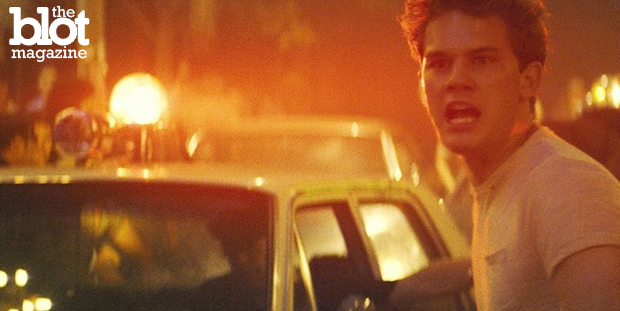
The trailer for Roland Emmerich’s long-awaited film dramatizing the Stonewall riots, that seminal moment in the history of gay rights, dropped yesterday. Take a moment to watch:
The trailer for “Stonewall” opens with rather cliched angelic voices ringing faintly behind the words of President Barack Obama from his second inaugural address in which he poetically laid out three important movements that contributed to social justice in American history: “Seneca Falls, Selma and Stonewall.” Spliced in after that, Obama goes on to add that “ordinary people can do extraordinary things.” Curiously, in reality this line did not come immediately after his alliterative moment of historical allusion. Perhaps this was because the gays and lesbians who were the combatants at the Stonewall Inn the night of June 28, 1969, the night the riots erupted, were anything but ordinary.
Read more: There Goes the Gayborhood?
The trailer then introduces us to Danny (why are clean-cut American boys always named Danny?). Danny is played by the handsome, non-threatening and rather ordinary-looking Jeremy Irvine (“War Horse”). The trouble with Danny? Danny’s gay and having a hard time in Kansas (of course) and decided to flee to the big city. A storyline we’ve seen play out about a million times now. Go find yourself in New York, if you can make it there … let’s all root for Danny … yada yada.
Beyond the cliched storyline, Danny is white. The big deal? Hardly anyone at the Stonewall Inn that fateful night was. Let’s be honest, their patrons were hustlers, drag queens and queer boys of color. Stonewall the space itself was seedy and disgusting. As the trailer does state, these bars were mob-owned. There were often hepatitis outbreaks because bartenders routinely did not wash the drinking glasses. Few middle-class white gay men would have been caught dead there.
By using a white, cis man as the protagonist, the film robs those who were there, those we owe for that spark in the movement, their very rights to the historical record. Some historians openly wonder if it is right at all to use the Stonewall riots as the event from which to mark with Pride celebrations each June. The movement very much needed the firebrand politics of the forgotten, the poor, the outcast classes of queer people who, indeed, had nothing to lose, nothing to risk in arrest, no downtown employer to explain things to, no social standing to be shunned from. These were the ones who threw the first bricks.
The gay-rights movement owes its start to these demeaned peoples whom many of us would not have paid any mind had we lived next to them in the winding streets of Greenwich Village in the summer of 1969.
Read more: 50 States of Gay: Supreme Court Overturns Bans on Same-Sex Marriage in Historic Ruling
Revisionist history is one of the worst enemies of marginalized peoples. Denying them their history attacks both their dignity and their sense of belonging. But perhaps in our collective queer historical imaginations, we just want a Danny there. And maybe he was, but the trailer fails to let us in on whether the particular struggles of individual subcultures will be represented.
Director Roland Emmerich, who gave us such hard-hitting historical studies as “White House Down” and that searing indictment on climate change “The Day After Tomorrow,” troubled many from the start when he was attached to the film. He’s been criticized for his use of hyper-color-saturated photography and relying too heavily on computer-generated effects.
This time, you could say that Emmerich didn’t use enough color.
Maybe the film will surprise me. And it’s probably not best to judge a film from the trailer, but history is made by those who misbehave. I just hope the film depicts all of them in its depiction of all of us.
“Stonewall” premieres at the Toronto International Film Festival in September, with a larger theatrical release scheduled for Sept. 25.
Brock Thompson is a contributing journalist for TheBlot Magazine.






One Comment
Leave a Reply